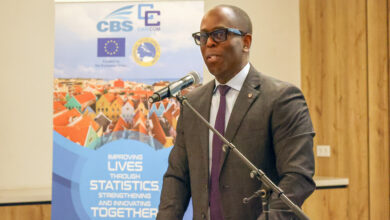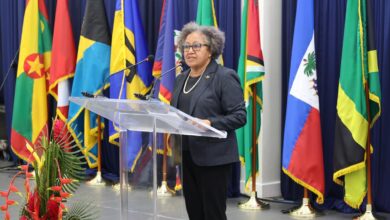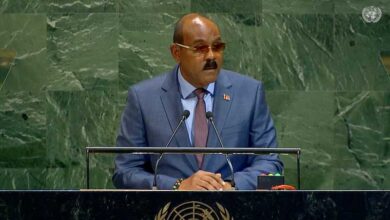Saint Lucia will lead the CARICOM delegation to COP 21 in Paris and will make a case for the survival of small island states at the talks.
With less than a fortnight left before the 'make or break' climate talks, Saint Lucia's Prime Minister Dr. Kenny Anthony says he is pleased with the country's work towards a CARICOM position on Climate Change.
The Caribbean has made its stance clear: member states are demanding a 1.5 degrees Celsius cap on the emission of greenhouse gases. Anthony says CARICOM will not back down from this demand.
“We will be sending out a very clear message to the rest of the world that these small island states are in serious danger. As much as we are prepared to cooperate with the rest of the world to meet climate change challenges head on, the rest of the world needs to understand that developed countries have a special responsibility to small states, because in the first place, they are the ones who have really caused the problems that we are now experiencing,” he said.
Dr. Ulric Trotz is one of the scientists advising CARICOM on climate change. According to him, the Caribbean is already reeling from the impacts of climate change and the countries will be pushing for funding for adaptation projects at the Paris negotiations. He says that they will also lobby for the removal of the 'middle men' such as the World Bank, when receiving promised funds.
“Most of the climate funds come to us through intermediaries like the World Bank or the IDB or UNDP etc and we have found this approach to be quite burdensome. So we've asked for direct access whereby we can basically get the funds directly from the green climate fund,” he said.
Climate Change negotiators in the Caribbean say the Region is prepared and heading to the 21st Conference of the Parties (COP 21) as a formidable grouping of 15 countries committed to achieving a legally binding agreement with rich nations on climate change.
The first COP was held in Berlin in 1995. During COP 21 in Paris, for the first time in over two decades of negotiations, the aim is to secure an agreement that will keep global warming below 2 degrees Celsius.





